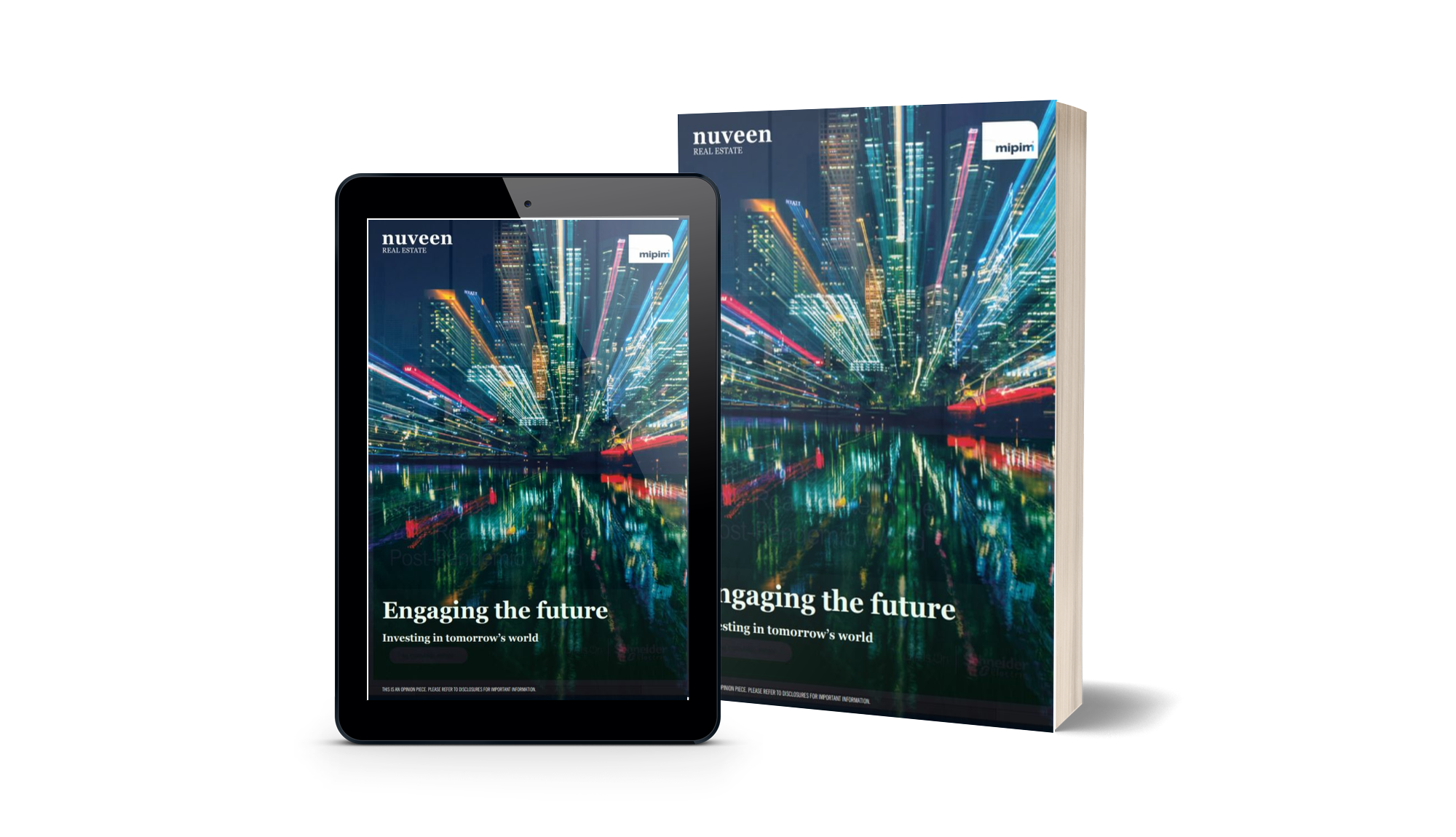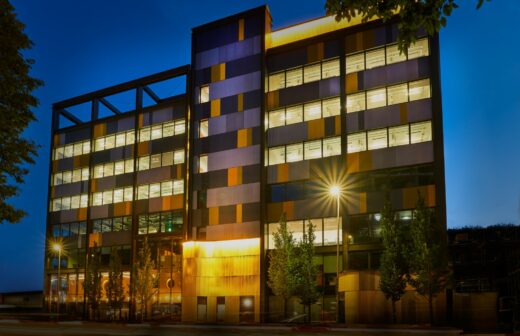When the Queen made her annual speech at the state opening of parliament this May, she pronounced: “My Government will level up opportunities across all parts of the United Kingdom, supporting jobs, businesses and economic growth.”
‘Levelling up’ the country – to make it more equal socially and economically – is a key mantra for the UK Government, and for governments across Europe. When it comes to how best to do this, Plus X, who has opened their first innovation hub in the UK city of Brighton, believe it can offer part of the solution.

Engaging the futur
Investing in tomorrow’s world
Innovation hubs create opportunities and jobs, says Paul Rostas, co-CEO of Plus X, which opened Plus X Brighton last July in one of the UK’s most deprived neighbourhoods – the suburb of Moulsecoomb. The hub has a social and economic impact x160 greater than that of traditional office space, independent research showed.

Talent is everywhere, opportunity is not – Paul Rostas, Plus X
We’re also living at a time when the number of new start ups is surging and a growing number of younger people are aspiring to be an entrepreneur, even though 70% “do not know where to start”.
“Talent is everywhere, opportunity is not. A lot of people have entrepreneurial spirit within them; some know how to express that and some need a bit of support,” says Rostas.
A key theme for Plus X is complementarity. “Innovation ecosystems are complex by nature, so you need a variety of skills,” says Rostas, whose background is in FMCG and 20 years in global investment banking.
The career of co-CEO Mat Hunter, meanwhile, spans design and innovation, including 13 years at global design and innovation consultancy IDEO and as a visiting tutor at the Royal College of Art and Imperial College Business School.
Plus X innovation hubs – first stop Brighton, next stop West London
Plus X Brighton is a seven-storey purpose-built building offering 53,000 sq ft of co-working and flexible office space for 600 members, with access to facilities including a podcast suite, a virtual reality studio and prototyping labs.
The building, which is on track to be WELL Platinum certified, focuses on creating a healthy environment, with closely monitored air quality and biophilic design, including a rooftop terrace with edible plants and flowers.
The hub is also about the services and the value add that it brings to ‘members’, as tenants are called. As part of the innovation and business support offered, Plus X has teamed up with the University of Brighton to launch the BRITE (the Brighton Research Innovation Technology Exchange), which is part funded by a £5m grant from the European Regional Development Fund.
Members range from Marinatex (producing bio plastic from fish waste) and Naurt (designing the next generation of GPS) to Roadways (producing environmentally friendly road construction materials) and Brilliant Noise (marketing agency), as well as companies working in the fields of AI, fintech and product design & development.
The second innovation hub, Plus X Powerhouse is due to open in Hayes, West London, in the old EMI HQ, in 2022. It will be an expansion of the already established Central Research Laboratory, one of the leading start-up accelerator programmes for product designers in the UK, and which is run by Plus X on the EMI site.

Plus X Brighton Flexible Workspace
Taking Plus X innovation hubs across the UK
Plus X Brighton and Plus X Powerhouse are both managed by Plus X and owned by London-based developer U+I, who also supplied the seed funding for Plus X.
“Our ambition is to build a national network of innovation hubs together with third parties,” says Rostas, who has been talking with developers, landlords and councils across the UK.
Our ambition is to build a national network of innovation hubs together with third parties – Rostas
Cities on the map for a future Plus X innovation hub include: Bournemouth, Southampton, Birmingham, Coventry, Manchester, Liverpool, Sheffield and Glasgow. London, a city hard hit by Covid, is also in their sites.
Current conversations include plans to repurpose a town hall, a high-street department store, as well as big regeneration schemes, which, as Rostas says, often have a disproportionate focus on creating new homes. “A lot of councils are saying that their borough needs jobs and we want to create the opportunities that can result in those high-value jobs” adds Rostas.
We also spoke to Paul Rostas, co-CEO of Plus X, about:
What would you like to change in the workspace landscape?
“A mindset in the UK is that the biggest and best companies are made in the US, or in big cities such as London, Paris, San Francisco. Our view is that the most talented people should not have to move to those cities to succeed, and the pandemic has only reinforced that view.
Why shouldn’t we be attracting talent from New York or San Francisco to towns and cities in the UK? – Paul Rostas
“We want to help towns and cities retain their existing talent and to attract talent. Why shouldn’t we be attracting talent from New York or San Francisco to towns and cities in the UK? If we can unlock potential closer to home, that will be a great thing to change.”
Why innovation hubs, and why now?
“We chose ‘innovation hubs’ as part of our name given that our idea was to attract people who wanted to drive business growth, and we wanted to see that growth in terms of job creation – a wonderful by-product of success.
Innovation is about people and place, as well as technology – Paul Rostas
“The need to grow innovation is more important than ever. You have the Prime Minister now regularly talking about innovation, university vice-chancellors, company CEOs… If you don’t innovate, you’re going to be out of business.Minify
“The question is how to create and capitalise on the opportunities to innovate, whether those opportunities are in the areas of digital technology, sustainability, or the design environment. Innovation is about people and place, as well as technology.”
What kind of tenants, or members, are important for an innovation hub?
“We believe in curated collaboration. It is really important to bring together a rich mix of small and medium, and large companies from different industries, and then you have something quite powerful. It’s about complementarity. We’re always looking for this.”
How do you see the future of the workspace?
“How office space is used, where it is located, and how much space is needed is changing. It’s about people coming together, with the idea that I’m complementary to you, that 1+1=3, and how best to facilitate that.
How office space is used, where it is located, and how much space is needed is changing – Rostas
“At Plus X we also think about different solutions for people using our space differently. Your company might want a traditional space for ‘let’s sit at our desks and do our day jobs’, and then the next day someone might use the same space for brainstorming, while others may use it as a fun space.”

Engaging the futur
Investing in tomorrow’s world

Engaging the futur
Investing in tomorrow’s world
Is it important as a workspace provider to differentiate yourself?
“We are big believers in health and wellbeing. Plus X Brighton is on track to be a platinum WELL building, but that is table stakes – something that everyone should be doing as a minimum.
“Beyond that, for us at Plus X, it’s about: how can I add value for you, as a member? As part of our service, we support companies to grow innovation and to grow their business.
Being on track to be a Platinum WELL building is table stakes – something that everyone should be doing as a minimum – Rostas
“Even though the workspace market is a competitive landscape, there is a huge demand for space – and for support – if you get it right. Testament to this is that of our four floors open, Plus X Brighton is nearly 70% occupied even though we opened during the pandemic.
Even though the workspace market is a competitive landscape, there is a huge demand for space, and support, if you get it right – Rostas
And, finally, what keeps you awake at night?
“Impatience. Real estate takes time. It’s about wanting to help, and make a difference and drive innovation ecosystems and positive social impact as quickly as we possibly can, and that takes time.”



